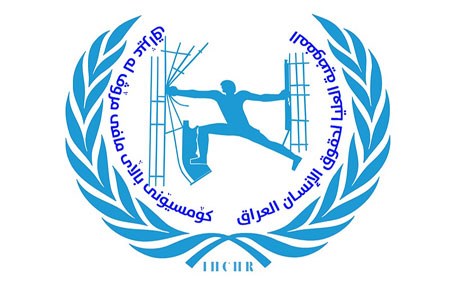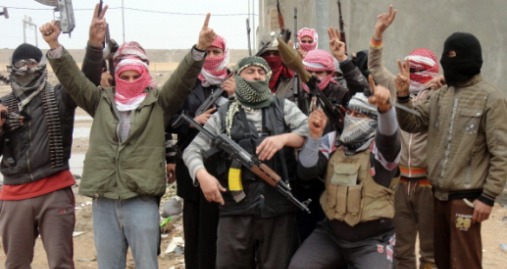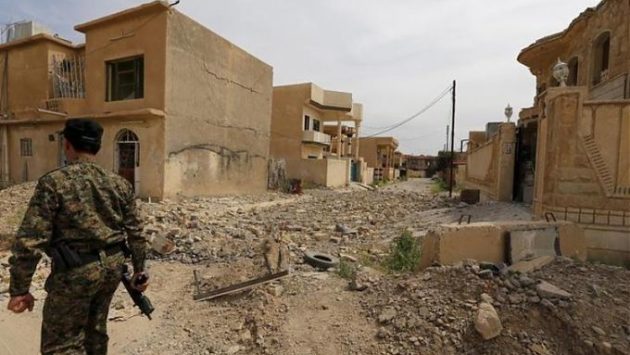The New Iraqi High Commission for Human Rights Faces Serious Objections from Civil Society
The Iraqi Civil Society Solidarity Initiative (ICSSI)
The Iraqi Parliament voted on the selection of new board members for the Iraqi High Commissioner for Human Rights, ignoring objections made by civil activists and representatives of civil society on the mechanism of choice. Therefore, Iraq has elected a new Board of Commissioners not very different from the previous one, which has proven to be both ineffective in its goals and unpopular to the Iraqi people. The Commission is composed of 13 members in total, 11 of whom are distributed across the main party blocs according to the current system of political quotas (5 seats to the Shiite National Alliance, 3 seats to the Union of Iraqi Sunni forces, 2 to the Kurdistan Alliance, and 1 for the Assyrian movement).
The selection of commissioners according to this quota system makes the work of the Commission in monitoring the human rights situation in Iraq almost impossible. This is apparent from even a cursory look at the term of the previous Commission, which ended without finding a president, and without producing a single report or document which clearly assessed the reality of human rights in Iraq. After years of what has come to be thought of as a failed experiment, Iraq replaced its Ministry of Human Rights with its current Commission. This Commission should be independent, and compatible with the Paris Principles that regulate the work of similar commissions throughout the world.
Representatives of civil society object to the mechanism of selection of Commission members because of the so-called “Committee of Experts”, which is responsible for choosing the members. According to civil society groups, this committee is not what it purports to be: a group of experts who are neutral and committed to supporting and protecting human rights across party and religious lines. In fact, the “Committee of Experts” includes ten representatives from the exact political blocs which are now represented in parliament — and who are not familiar with human rights issues. It also includes two members from civil society organizations, one from the Federal Court, and a representative named by the Prime Minister. Finally, the committee includes a representative from the Human Rights Office of the United Nations Mission (UNAMI). The newspaper, Asharq AL-Awast, reported that the two members representing civil society organizations, Jamal Al-Jawahiri, Alaa Al-Asadi and UNAMI representative, Francesco Mutu, withdrew from the Committee of Experts in protest after their concerns went unheard about “the party quotas, according to which the names of candidates for the Board of Commissioners were chosen.”
Civil society activists call for the abolition of the Committee of Experts because it is unable to produce an independent commission, one that is not subject to the very political quotas which dictate its own members. Unfortunately, the Iraqi parliament ignored their requests.
The Amargi organization, which works to promote freedom of expression in Iraq, also objected to the selection of the new Board of Commissioners. They too fault it for being based on and thus reenforcing sectarian quotas. Amargi recently voiced their concerns publicly in a published statement.
The “Civil Platform”, a group of Iraqi NGOs, also issued a statement explaining the reasons behind their refusal to work with the Commission, and are planning to submit a formal complaint to the International Human Rights Council calling for the reclassification of the Iraqi Commission from a B to C. Additionally, the Civil Platform wants to be sure that the Iraqi Commission attends meetings of the Human Rights Council, and provides it reports on the state of human rights in Iraq — no such report has been provided by the Commission, and thus for the past 4 years, human rights violations have been largely undocumented. The Commission has thus far disregarded the Paris Principles, especially article 2, which underlines the importance of establishing effective national institutions for the promotion and protection of human rights. National legislation should ensure that its human rights institutions are independent, and work to protect the human rights of all citizens, members of majorities and minorities alike.
The Civil Platform NGOs indicated that they are preparing to file an official complaint to the Federal Supreme Court alerting them to the fact that the process of selecting the Board of Commissioners was marred by violations of the Iraqi Constitution, Article 102. This article guarantees the independence of the Commission. The complaint also cites the law of the High Commission for Human Rights, No. 53 (2008), which states in Articles 8 – II, that members of the Board of Commissioners should not be affiliated with any political parties. Iraq’s recently appointed Commission not only violates these laws, but contradicts the reform program promised by the Iraqi Prime Minister, Haider al-Abadi.
To date, there has been no public dialogue about whether such a commission can effectively monitor human rights if it lacks independence from party affiliations — and, given the former Board of Commissioners, which after four years, has shown no sign of tangible progress, civil society groups seem right to be dubious of the new Board. Some of the most powerful political parties and blocs insist on using quotas in selecting members of the commission and thus it blatantly fails to meet the standard of independence. The existing political system, though broken, continues to gather strength and will consolidate these quotas while paying lip service to the ideals of an “independent” commission. Civil society organizations which take a stand on this issue face tremendous pressure from political forces which attempt to prevent them from registering if they are critical of such policies. It is not surprising then that there are growing feelings of disappointment after promises of reform to the quota system seem to have been forgotten or deliberately ignored.
The members of the new Board of Commissioners of Iraqi High Commissioner for Human Rights have already taken their constitutional oath. They are: Mr. Hameen Rachid Zidane, Ms. Basma Mahmoud Mustafa, Mr. Thamer Yassin Abdallah, Mr. Ali Akram Zine El Abidine, Mr. Mashreq Nagy Abboud, Ms. Mahmoud Fahd, Mr. Ali Abdelkarim Mezer, Mr. Fadel Abdel Zahra Abbas, Mr. Aqeel Jassim Ali, Mr. Zidan Khalaf Obaid and Mr. Amer Bulus Zia and Faten Abdel Wahed Abbas as original members, as well as Ms. Barwin Mohamed Amin, Mr. Anas Akram Mohammed and Mr. Faisal Abdullah Badr, as reserve members.





